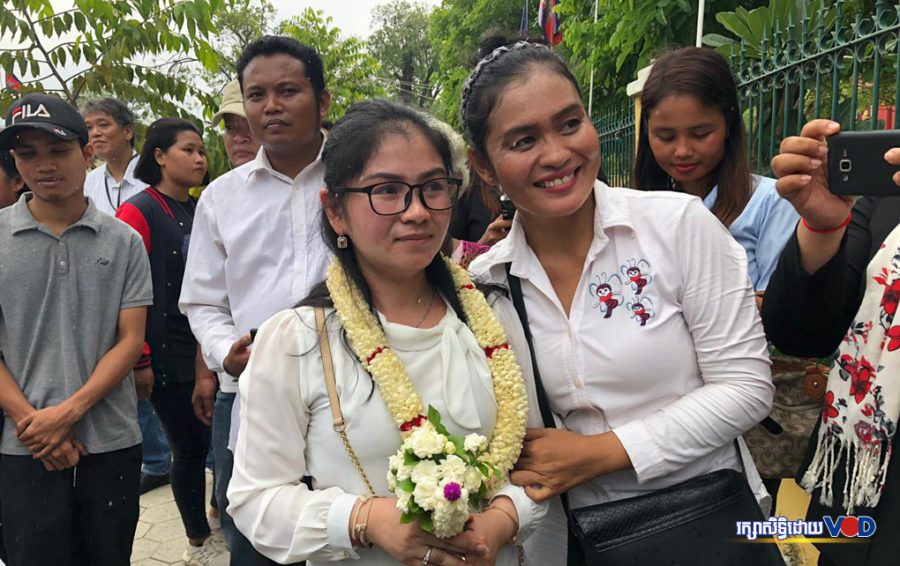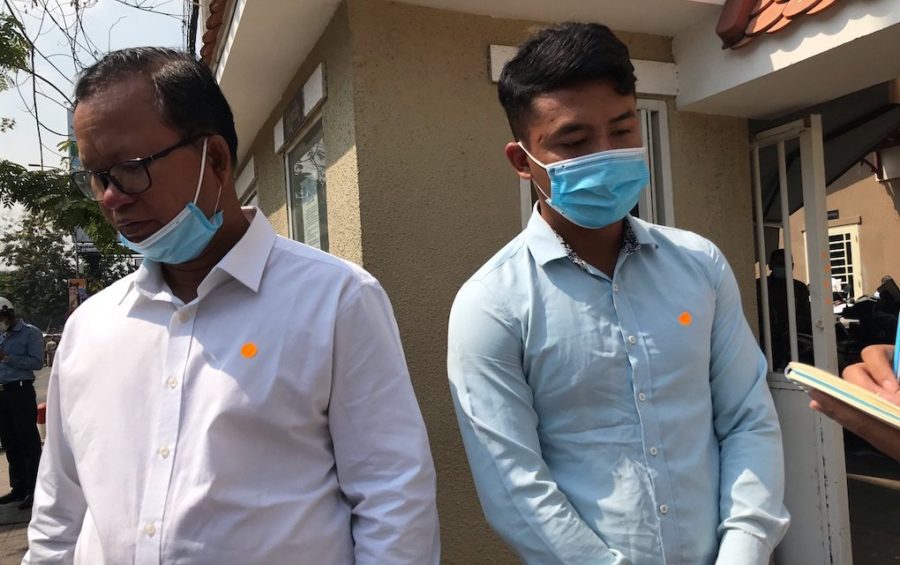Chea Yamorn this week joined the ruling CPP.
In 2017, he was elected commune chief of Phnom Penh’s Boeng Tompun II, but as a member of the opposition CNRP he was removed from the seat when the Supreme Court outlawed the party in November that year.

He waited almost four years for a viable opposition to re-emerge, but in a ceremony at the Chbar Ampov district hall on Monday he finally switched sides.
“If there isn’t something real, I can’t wait till I die in order to serve the people. That will be too late for our old age,” the 53-year-old says.
He says he can’t foresee a return for the CNRP, formerly the country’s main opposition party. He sees the CNRP’s dissolution in 2017 as politically motivated, but since then he has been working selling eggs. He joined politics in 1993 because he wanted to serve his community.
Earlier this year, Yamorn was at the Phnom Penh Municipal Court, as part of “mass trials” involving more than 130 other defendants, facing charges of plotting — and up to 10 years in jail — for allegedly supporting the return of former CNRP president Sam Rainsy in 2019.
But Yamorn says it wasn’t political pressure that made him join the CPP, but his desire to be useful. He felt he was wasting time.
“So we have to take this opportunity. We can’t wait,” he says. “I still want to help people, and anything I can do to help at the local level will make me happy before I die, because I am also a bit old and this is my wish.”
Yamorn adds that the state of the opposition is discouraging. “I think of all the minor parties: I will not join with that party,” he says.
The problems for the scattered opposition parties are myriad, but the former commune councilor also points out how difficult politics can be when it comes to earning people’s trust, conveying clear messages, and organizing a mass movement.
“Based on past experiences, I can see that [they] won’t be successful in leading a commune because of structure, [how they] collect members,” he says. “They don’t have the ability to explain [issues] to people, so they complain about obstacles.”
Politicians need to have the ability to make people believe, Yamorn says. “People don’t believe in small parties. I believe 100 percent that people don’t believe.”
He knows how long it took for the CNRP to build up its organization — and can also see that it is gone.
“Rebuilding that structure is very difficult,” he says. “People do not have faith. … Meanwhile, the CPP still has its whole structure down to village chiefs and village guards.”

Still in Limbo
The CPP and Hun Sen made an open offer for then-CNRP commune officials to defect and keep their positions. The offer was made weeks prior to the dissolution of the opposition party and the deadline was extended multiple times because only a dribble of CNRP officials defected. At least 100 officials switched to the CPP, many alleging they were threatened or coerced into defecting.
Sin Chanpeou Rozeth did not defect. The Battambang CNRP official was a rising star in her party after winning the O’Char commune chief position in June 2017.
In 2019, she was at the center of a num banh chok controversy after 36 members, including Rozeth, were questioned by a Battambang court for eating noodles at her restaurant and posting photos of their meal. Authorities said the noodle consumption was political activity and violated the 2017 Supreme Court order, though Rozeth was not part of the 118 CNRP senior politicians banned from politics.
Since then, the Battambang resident has kept a low profile, selling bags, clothes and oranges to make a living. Other parties have attempted to recruit her, but defecting would be against the “will of the people,” she says.
“People elected their representative through an election, so their representative needs to serve them based on procedures and set laws based on the five-year term of the commune mandate,” she says.
The former commune chief served her constituency for little over three months, but says the experience cemented her resolve to continue public service, and still tries to help the community by helping build homes for the elderly or buying school uniforms for children.
Rozeth is non-commital when asked if she will join one of the five CNRP-linked new parties, formed since its dissolution, to continue her public service. She says there are many non-CPP parties that have existed for years and never won a single seat in parliament.
“For me, it is meaningless, it means nothing at all. It means that those parties were created just as a formality for the ruling party,” she says.
“So, all those parties should find out themselves whether it is necessary to compete in the upcoming 2022 or 2023 election. It is up to the leader of each party.”
She wants to participate in a fair electoral process that allows for voters to vote out their elected officials, including the prime minister — a sentiment shared by a lot of the CNRP’s younger voter base.
“We want to have a new commune chief, a new district and provincial governor. We want to have a new prime minister to serve the people.”











